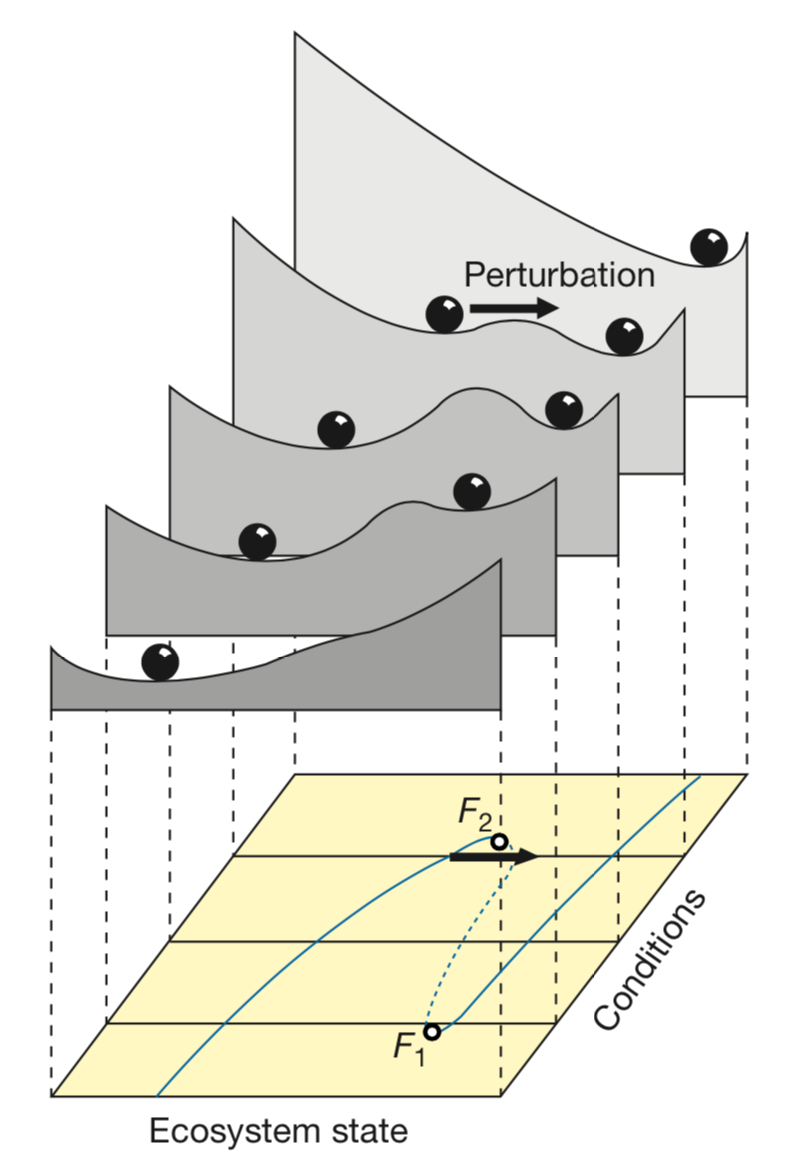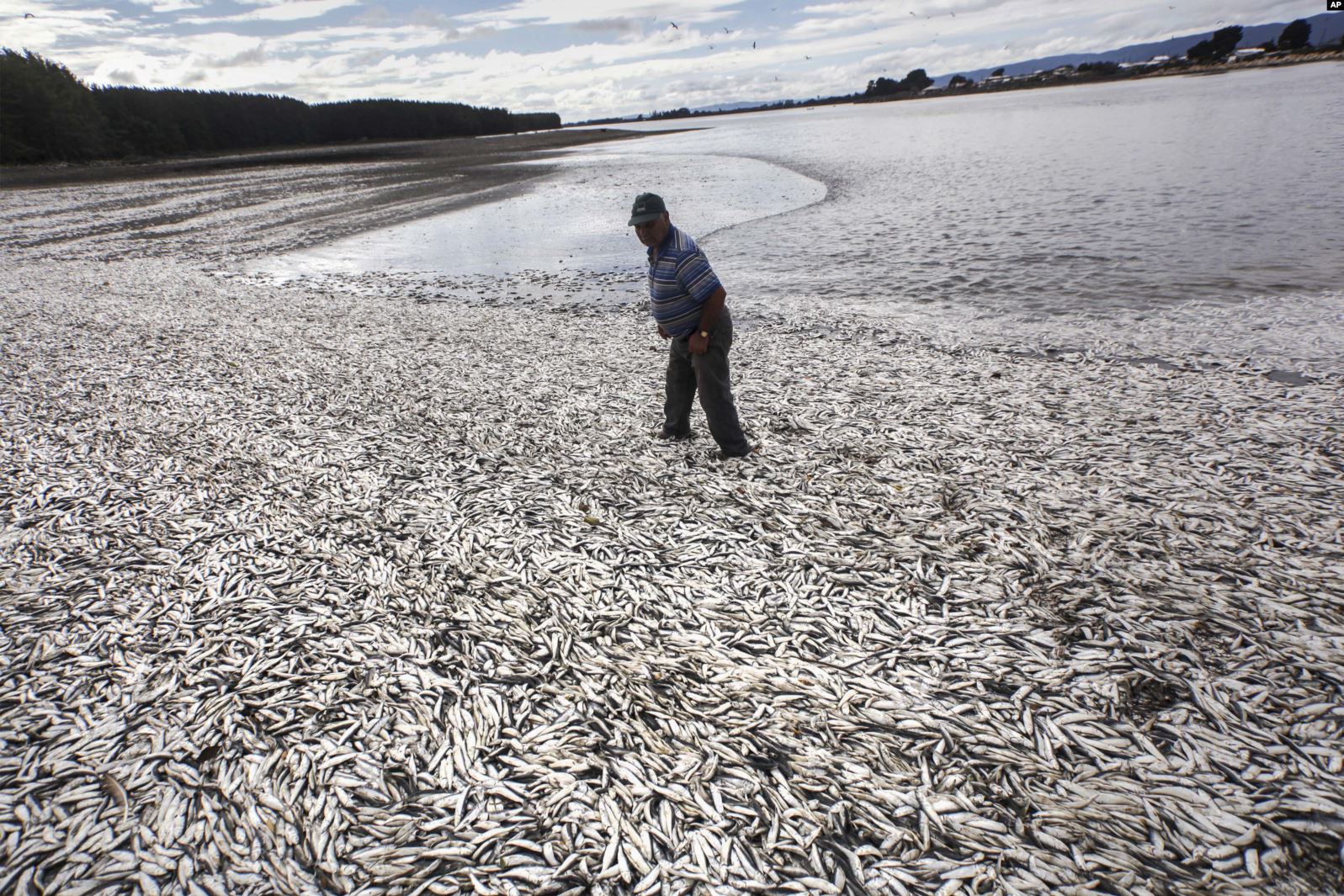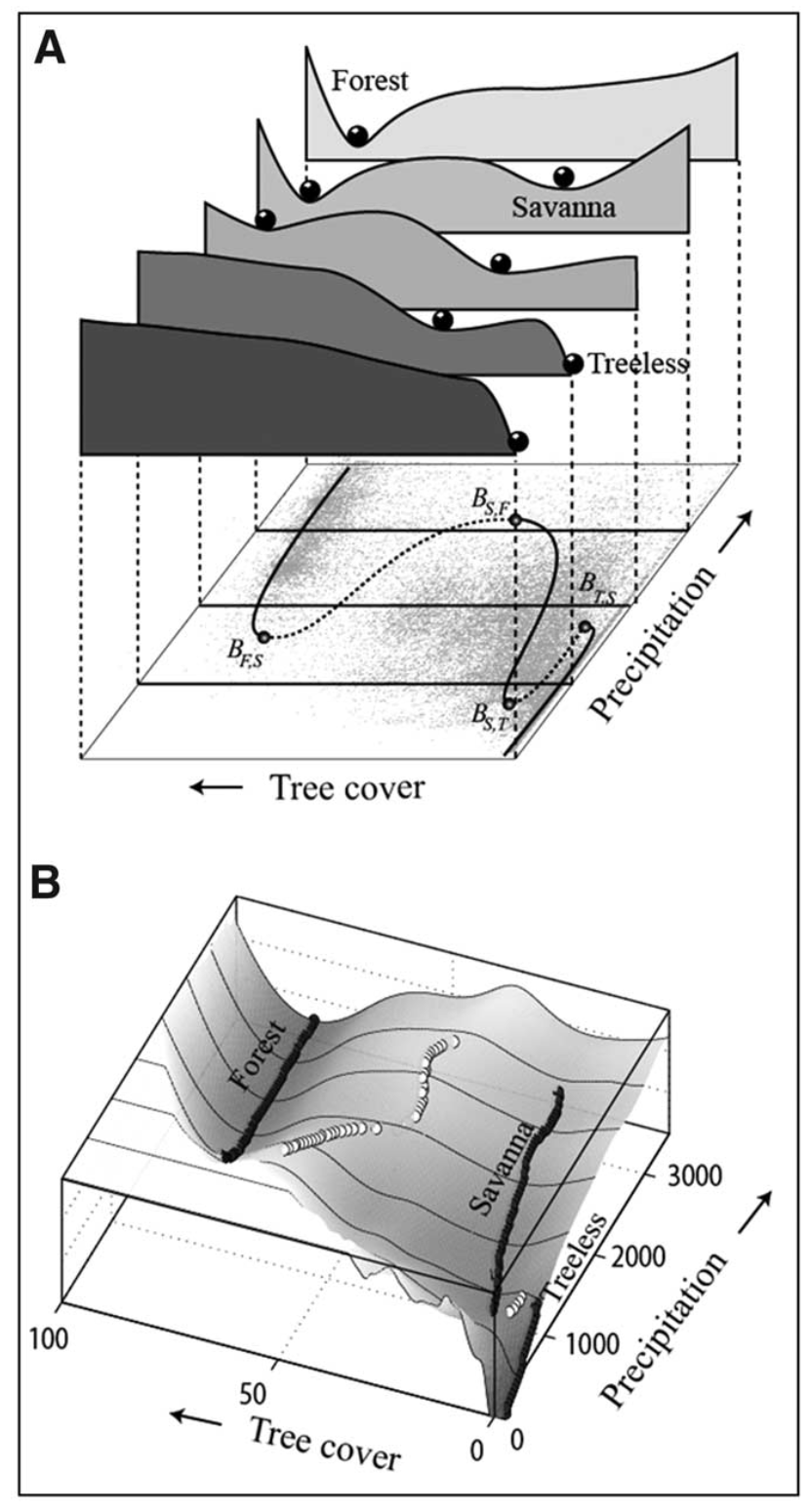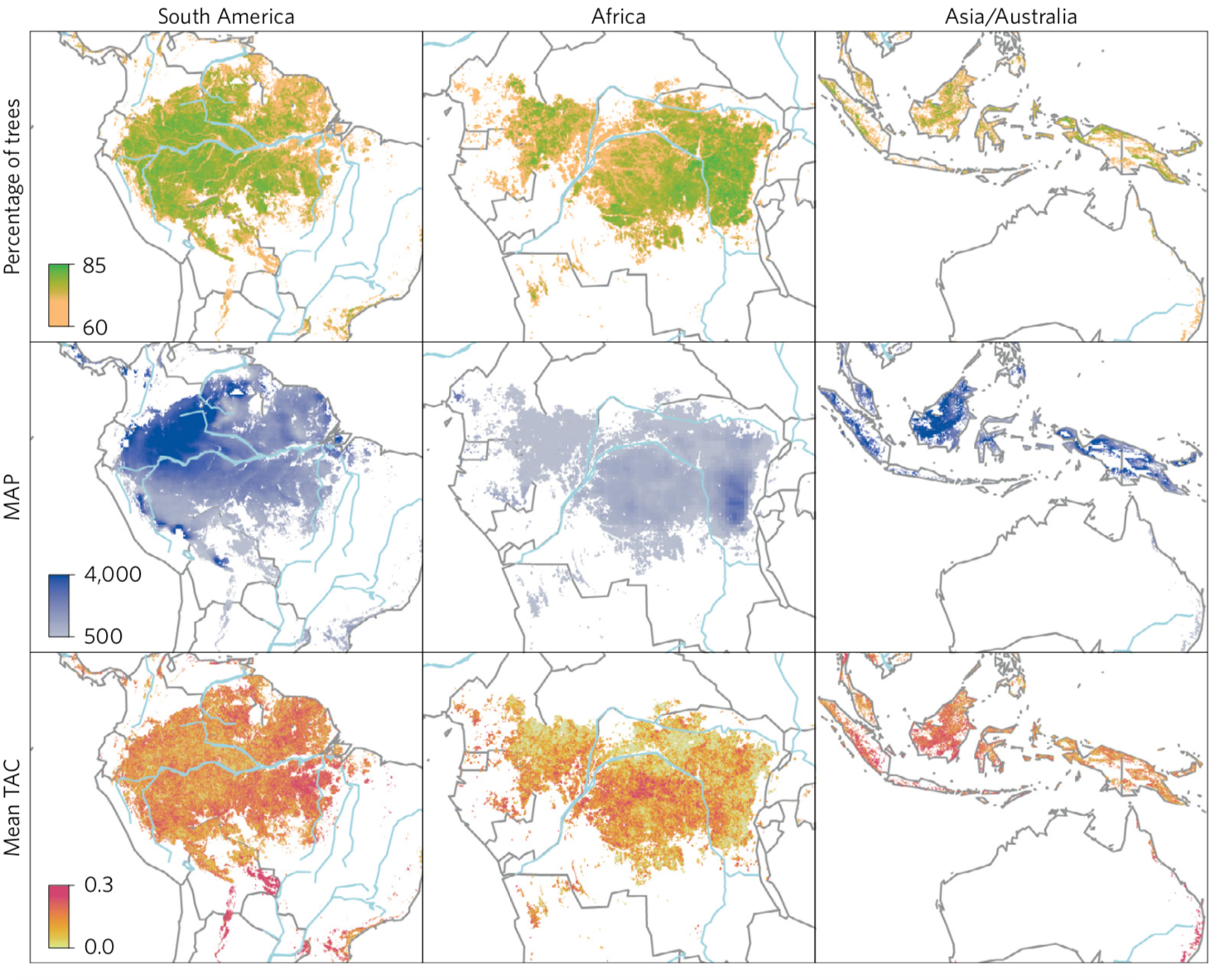05:00
Regime Shifts
Module 5: Systems theory and resilience thinking (BL8049)
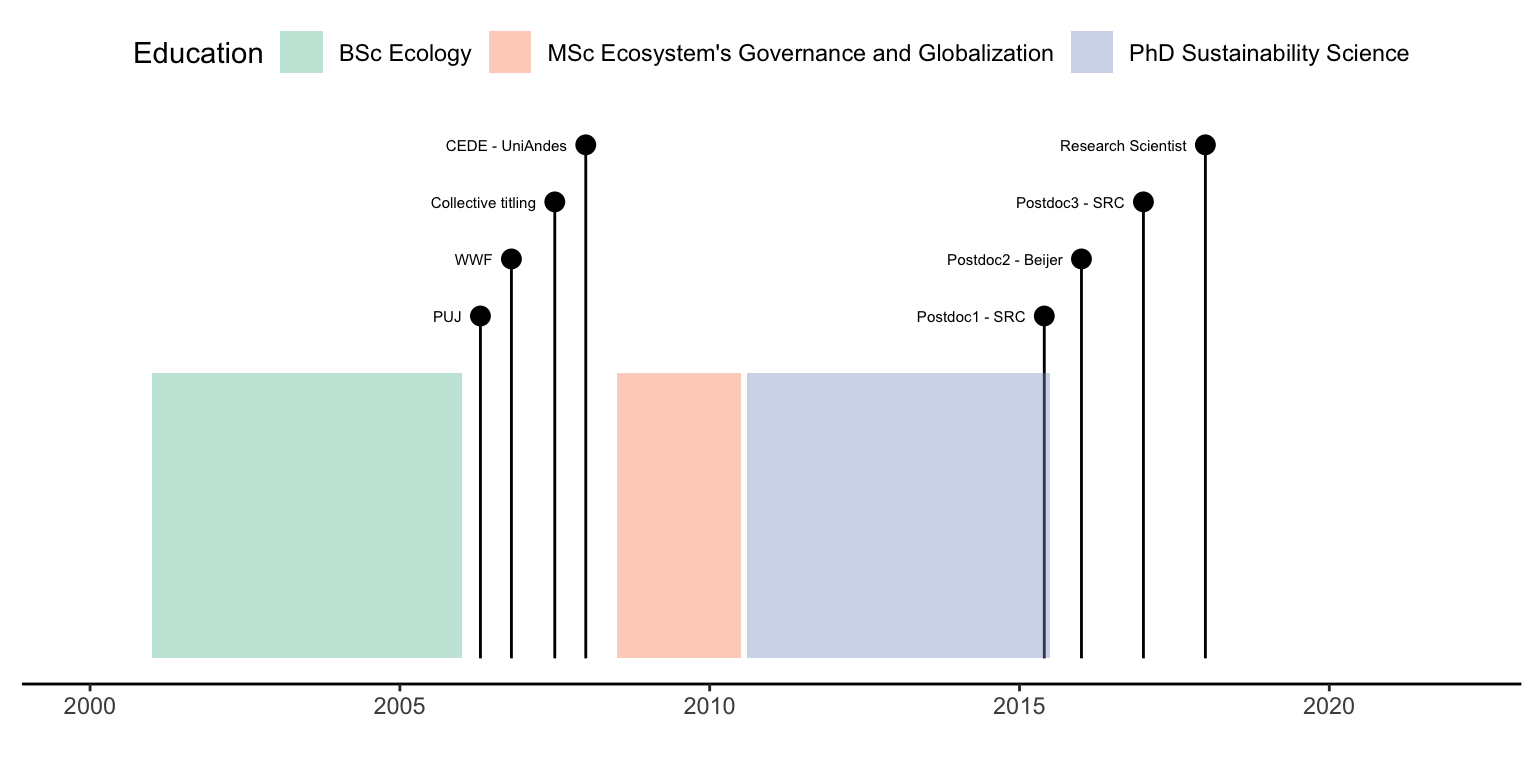
- Resiliencia Ecológica de la Pesquería Artesanal de Langosta Espinosa (Panulirus argus) en Providencia y Santa Catalina
- The domino effect: a network analysis of regime shifts drivers and causal pathways
- Regime Shifts in the Anthropocene
- Targeting Agricultural Innovations (Ghana & Burkina Faso)
- Behavoural Experiments in Social-Ecological systems with Thresholds (Colombia)
- Cascading effects of regime shifts (SU, MIT & Princeton)
About Juan
- Born in Colombia
- Ecologist
- Research assistant and consultant: UniAndes, WWF, Inter American Development Bank
- MSc Ecosystems Governance
- PhD Sustainability Science
- Research interests:
- Regime Shifts
- Complex systems
- Networks
- Collective action
Outline
Recap:
- Resilience: alternative approaches
- Features of complex systems
Regime shifts
{15 min break}
Tipping points
Transformations
Recap
resilience | rɪˈzɪlɪəns | (also resiliency)
noun [mass noun]
1 the capacity to recover quickly from difficulties; toughness: the often remarkable resilience of so many British institutions.
2 the ability of a substance or object to spring back into shape; elasticity: nylon is excellent in wearability, abrasion resistance and resilience.
Resilience
The capacity of any system to absorb disturbance and reorganise while undergoing change so as to still retain essentially the same function, structure, feedbacks, and therefore identity
Folke, C. 2016. Resilience (Republished). Ecology and Society
Holling C. 1973. Resilience and stability of ecological systems. Ann Rev Ecol Syst
Resilience
- Henri Poincaré discovered bifurcations in 1886
- Bifucations (non-linear dynamics) are foundational to studies across natural, social sciences and humanities.
E.g poverty traps, segregation, evolution of cooperation, cancer, language, finance, climate, the states of matter, among many others. - In 1960-70s ecology: related to the meaning of stability and catastrophe theory
(Lewontin, MacArthur, Holling, Ludwig, Walters, Noy-Meir, May)
Forest to savanna
Regime shifts are large, abrupt and persistence critical transitions in the function and structure of (eco)systems
Coral transitions
Regime shifts are large, abrupt and persistence critical transitions in the function and structure of (eco)systems
Fisheries collapse
Regime shifts are large, abrupt and persistence critical transitions in the function and structure of (eco)systems
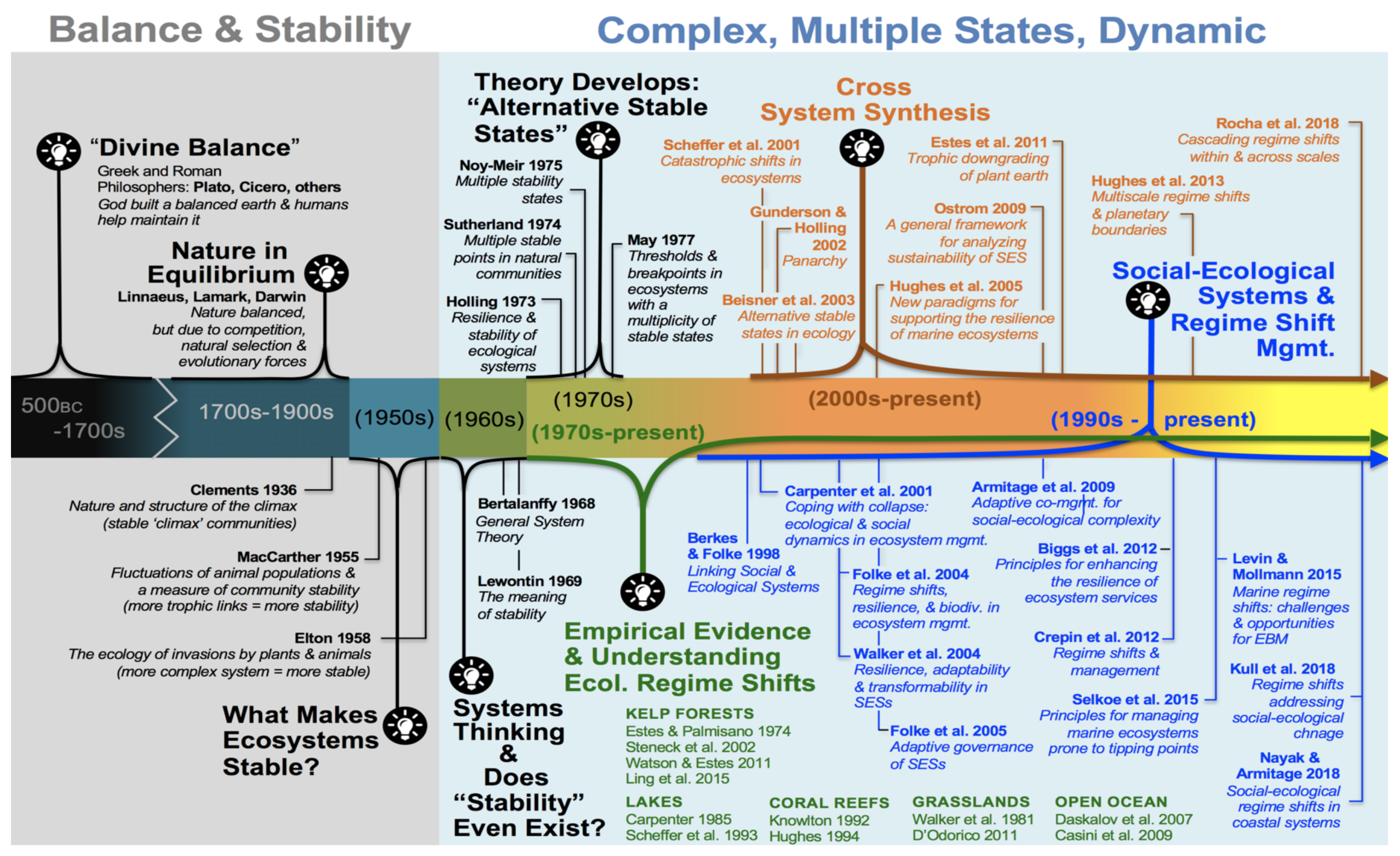
Source: Jenn Burt PhD Thesis
Complex Adaptive Systems
“CAS are systems that have large numbers of components, often called agents, that interact and adapt or learn”
— John H. Holland
- Complex: dynamic network of interactions, but the behavior of the ensemble may not be predictable according to the behavior of the components.
- Adaptive: the individual and collective behavior mutate and self-organize corresponding to the change-initiating micro-event or collection of events.
Mitchell, M. Complexity: A guided tour. Oxford University Press (2010)
Complexity
“There’s no love in a carbon atom,
No hurricane in a water molecule,
No financial collapse in a dollar bill.”
– Peter Dodds
- Interactions
- Emergence
- Dynamics
- Self-organization
- Adaptation
- Interdisciplinarity
- Methods
Discuss
Play with a model and reflect what feature of CAS is more prominent on your regime shift example?
Hysteresis
“Hysteresis is the dependence of the state of a system on its history … rate-dependent hysteresis is a dynamic lag between inputs and ouptups” —Wikipedia
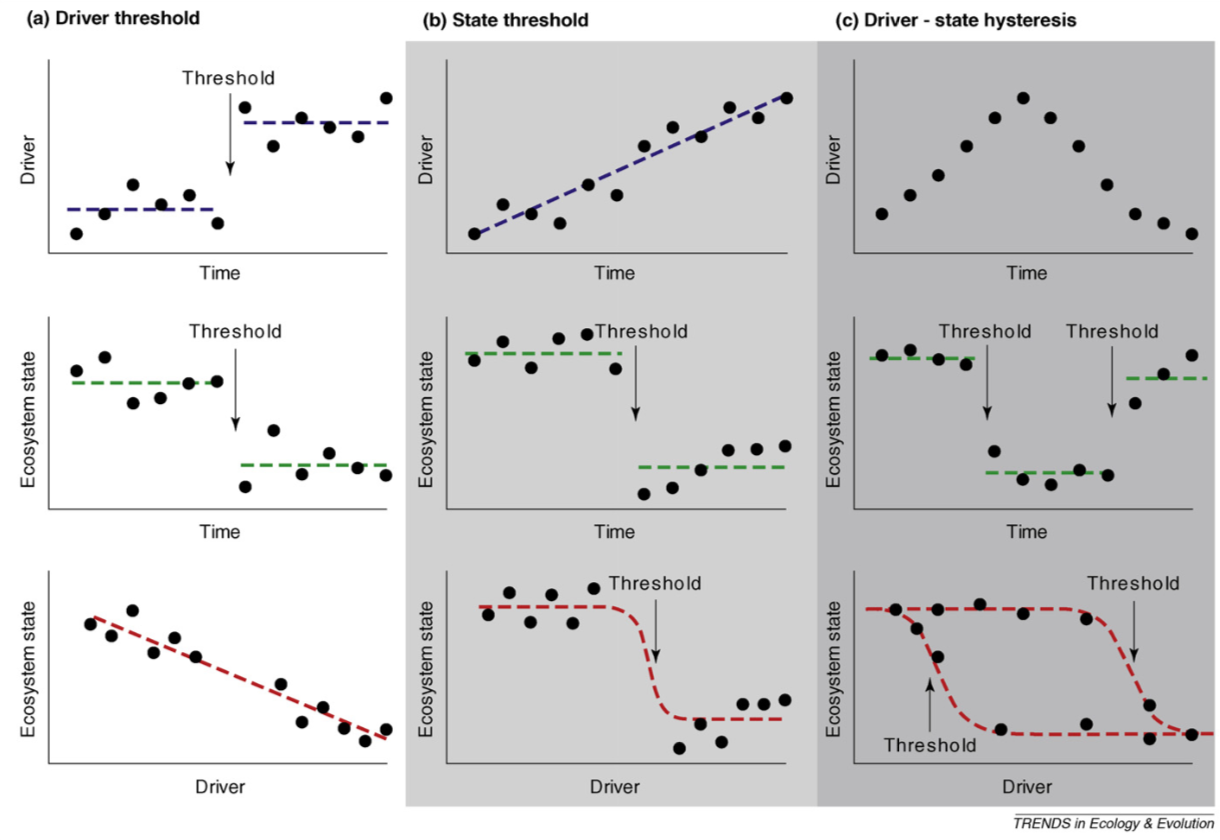
Andersen, J. et al. Trends Ecol Evol. (2009).
Abruptness affects the capacity to adapt to changes
Regime shifts and resilience
Magnitude of change that a system can absorb without undergoing a regime shift
- Size of the basin of attraction
- Depth
- Slope
- Proximity to the boundary
- Property of the system or the regime (state variable)?
- Property of the disturbance?
- Resilience of what to what? for whom?
Holling C. 1973. Ann Rev Ecol Syst -> Clark, W 1975 IIASA
Menck et al 2013 NatPhys
Carpenter et al 2001 Ecosystems
Why are regime shifts important?
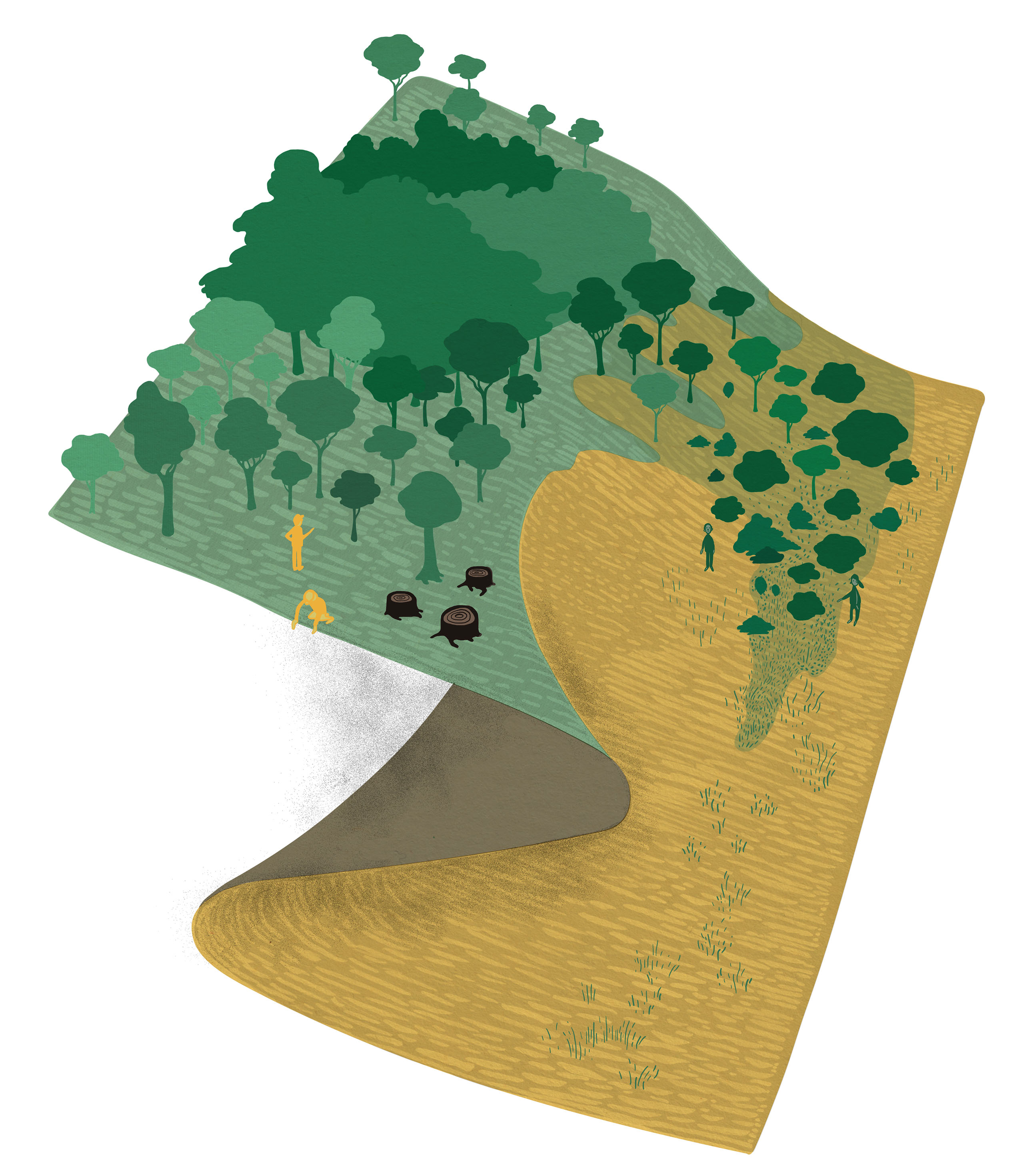
- Reduce the benefits people get from nature
- Difficult to anticipate and hard and costly to reverse
- Difficult (unethical) to perform experiments
- Often studied in isolation
- How do we compare them?
Biggs et al 2018 EcolSoc - What are their main drivers?
Rocha et al 2015 PlosONE - What are their main impacts?
Rocha et al 2015 PhilTransB
Discuss
Have you witnessed regime shifts in your life time? If so, what do you think were the causes?
03:00
Break
15 minutes
My personal experience
The regime shifts database
Tipping points
Back to theory
d🐠d⏱️=🐠(1−🐠🌎)−🎣(🐠2🐠2+1)
Back to theory: Where is the tipping point?
d🐠d⏱️=🐠(1−🐠🌎)−🎣(🐠2🐠2+1)
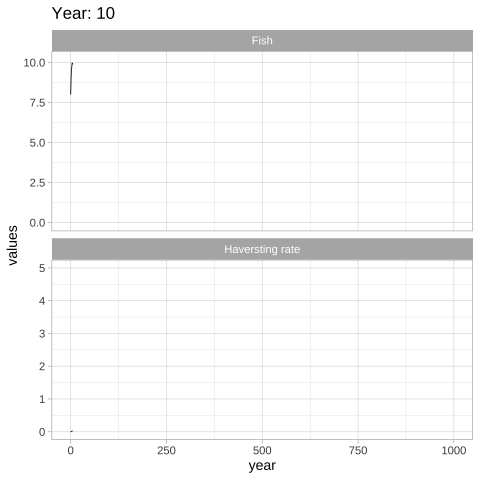
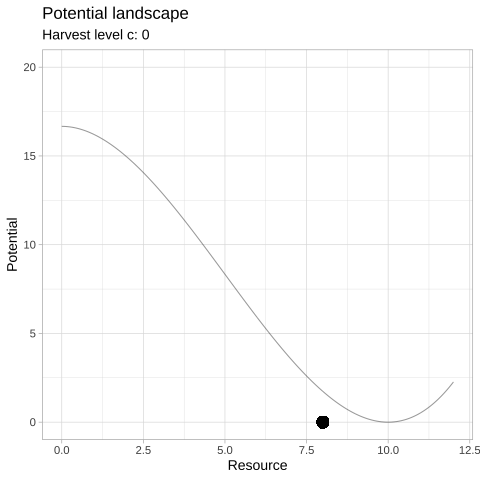
Where is the tipping point?
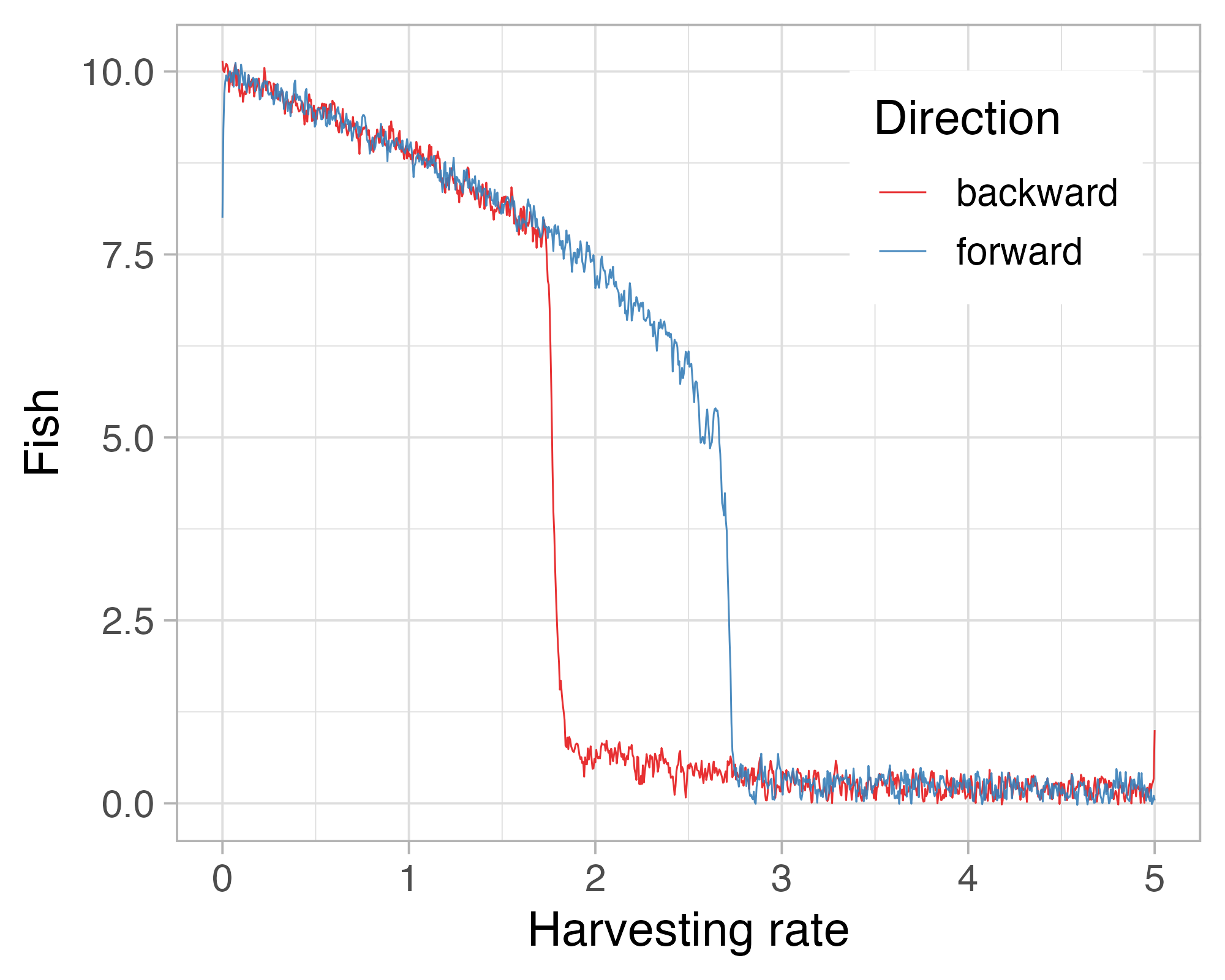
Tipping points

- Measurable and observable points at which the qualitative behaviour of the system changes
- Not people, nor events: history independent
- Clean to see in math, hard to see in the real noisy world
- Because hard to detect, some people do not find them useful e.g. Hillebrand et al 2020 NEE | Kopp et al 2024 NCC
Clarifications
- Tipping points are the points at which the system tips
- Theory vs Practice
- Threshold is the separatrix between basins of attraction
- Resilience is the size of the basin
- Its neither good or bad: depends on the observer
- e.g.: The mafia is resilient (good for drug consumers, bad for police & society)
Where to find tipping points?
Climate change
To help contextualize the newly released #IPCC Report, here's 800,000 years of Earth's CO2 history in 30 seconds. pic.twitter.com/goeQYSzdhE
— Kris Karnauskas (@OceansClimateCU) August 13, 2021
Learn more: https://www.ipcc.ch
- Climate is changing, warming, at unprecedented rates in thousands of years.
- Trigger irreversible changes in the scale of centuries
- Strong reductions of CO2 can limit climate change
- >1.1∘C warming since 1850s
- 1.5∘C: > heat waves, longer warm seasons and shorter cold seasons
- 2∘C: heat extremes, thresholds for agriculture and health
- Intensify water cycle, extreme events, sea level rise, ocean acidification and deoxygenation
IPCC interactive atlas: https://interactive-atlas.ipcc.ch
Climate tipping elements
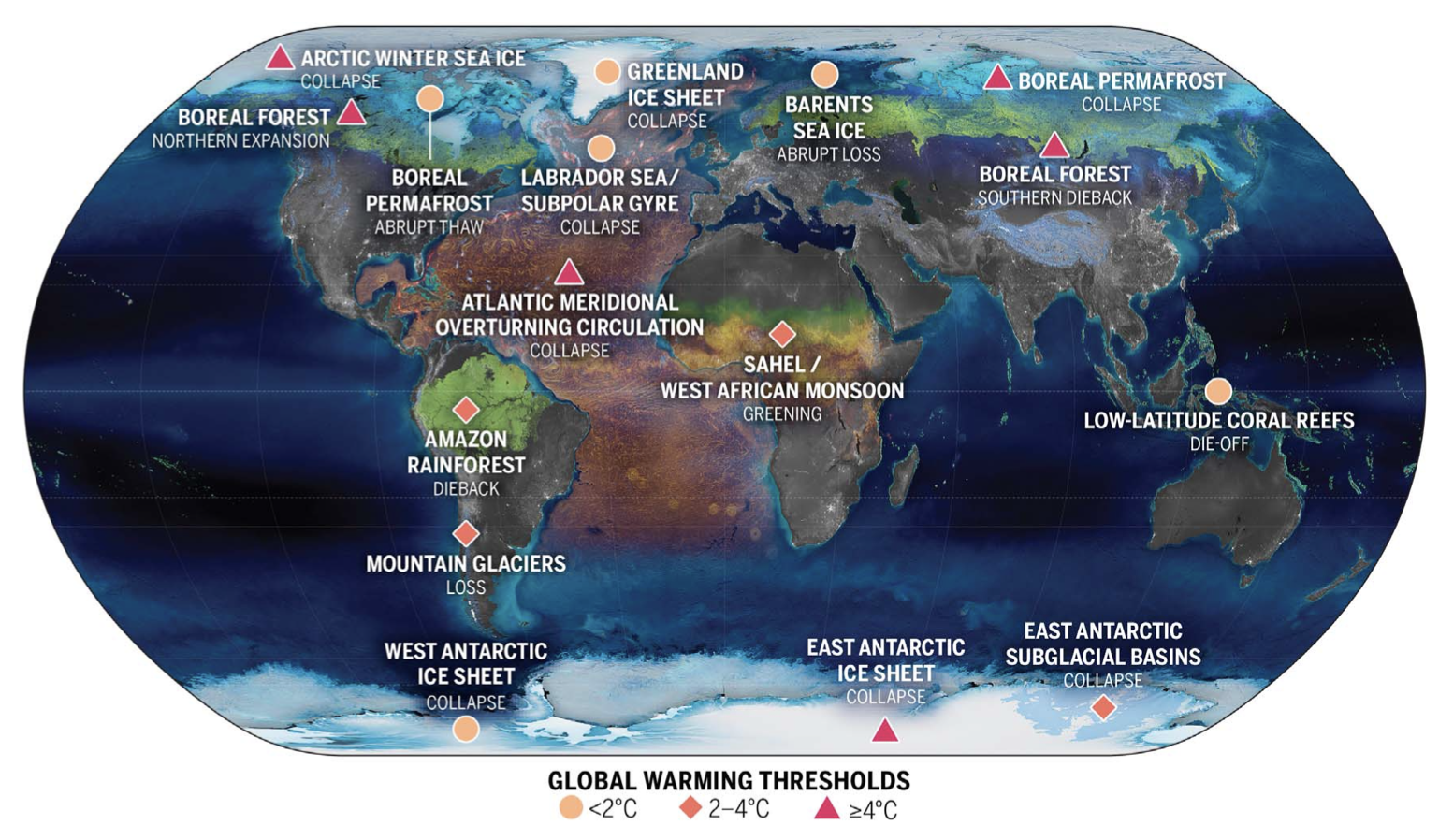
Climate tipping elements
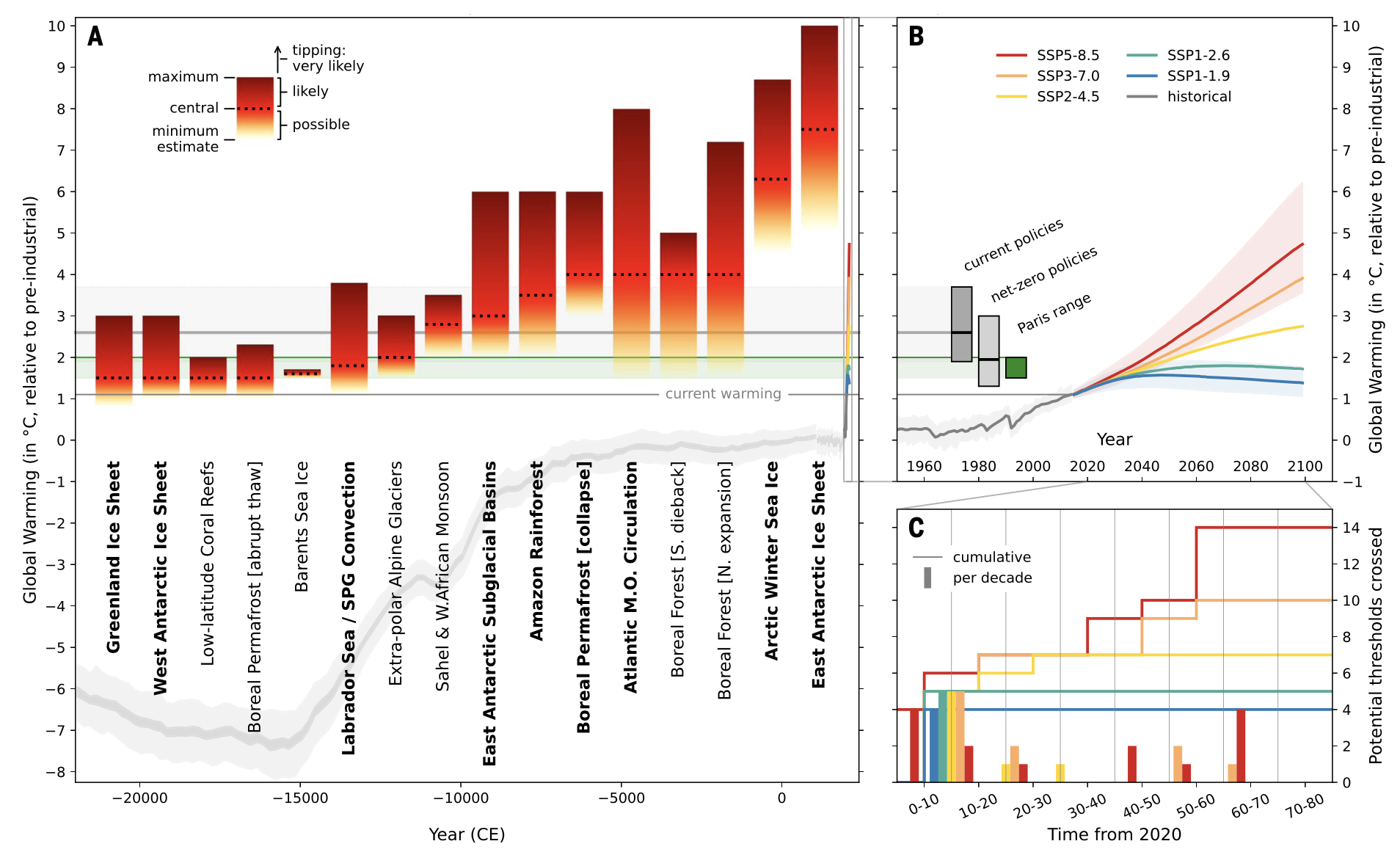
Climate is not the only one
- Drivers are nested in non-random clusters
- Food production, climate change, and urbanization are the main drivers globally
- Targeting well studied drivers wont be enough to avoid regime shifts
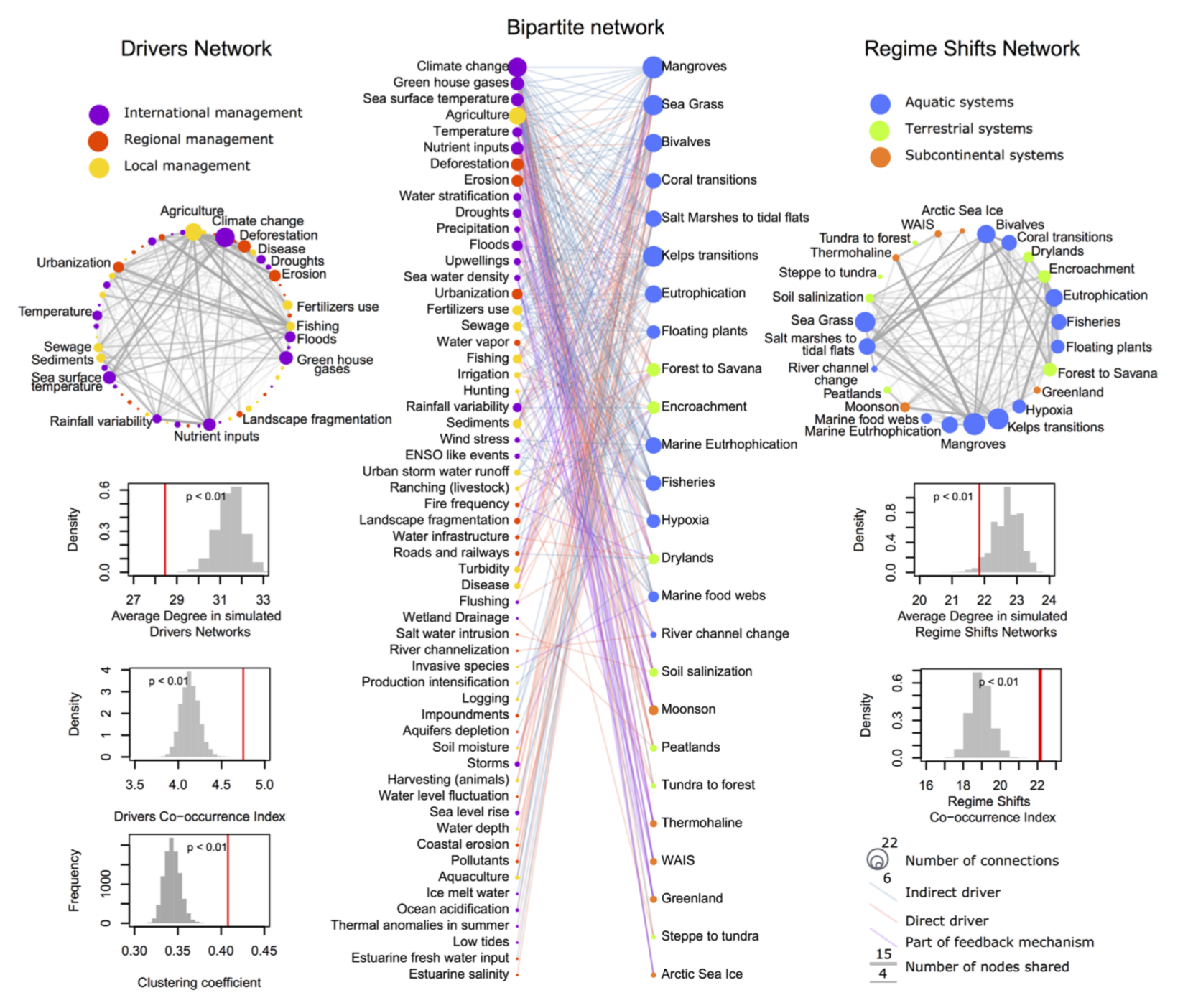
Known tipping points
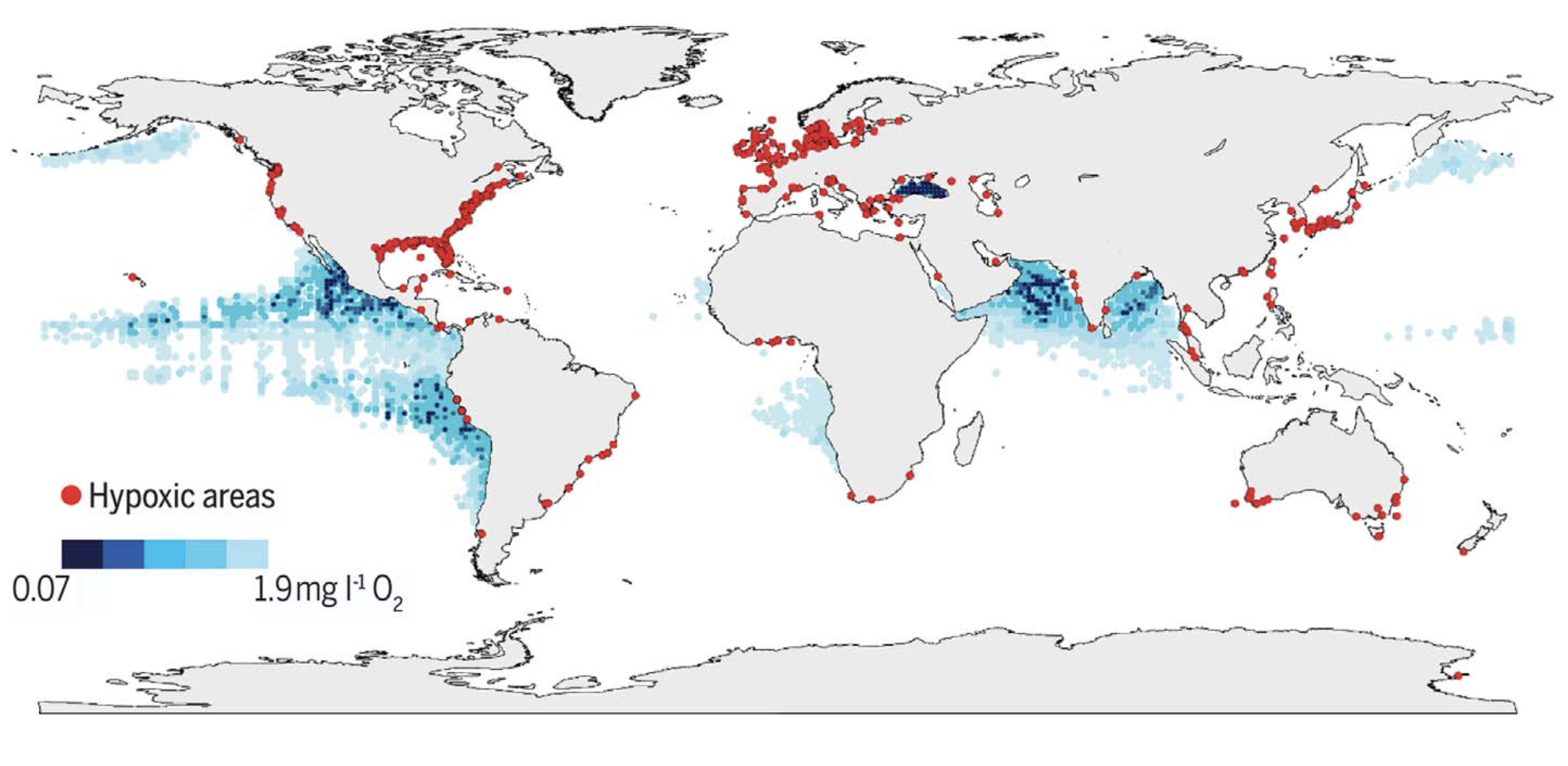
- Dissolved oxygen (mlO2/L)
- Normoxia: >2mlO2/L
- Hypoxia: ≤2mlO2/L
- Anoxia: <0.5mlO2/L
Known tipping points
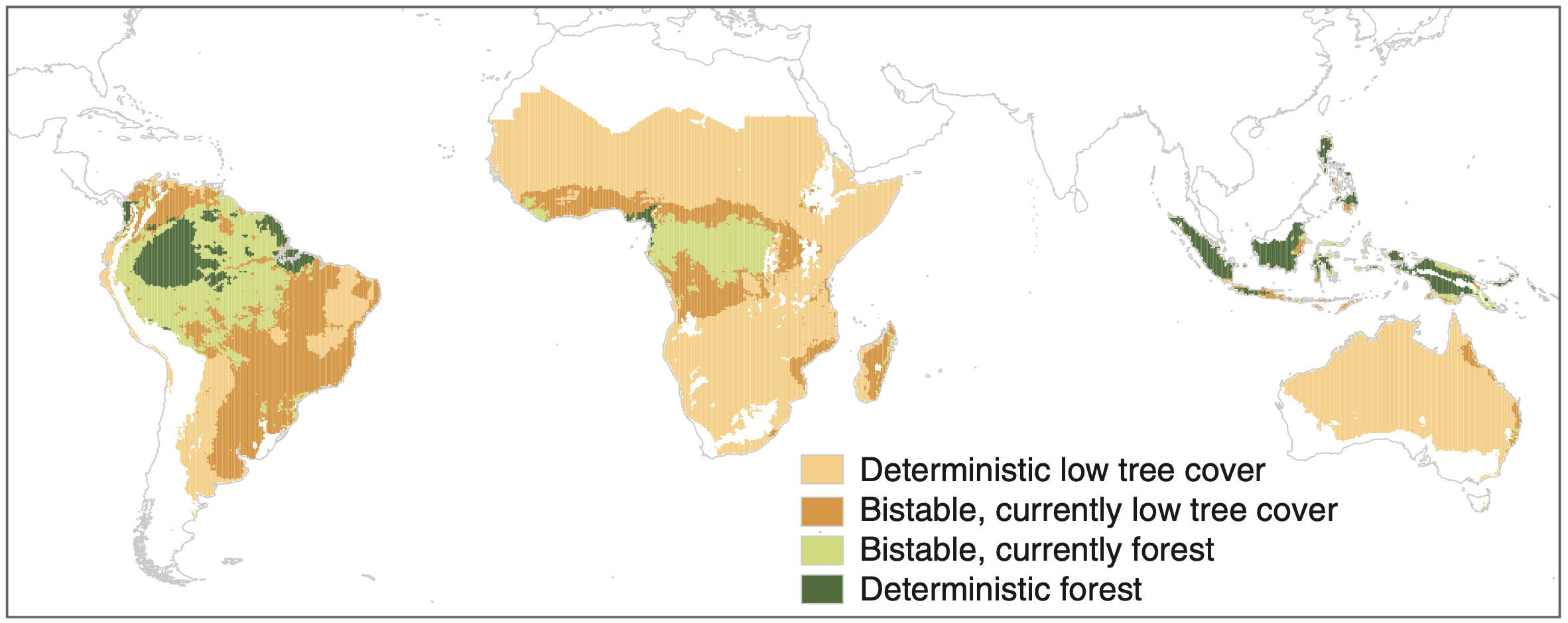
- Precipitation (mm) 🌧️
- Forest to savanna: ~1500mm
- Savanna to forest: >2000mm
- Savanna to treeless: ~500mm
Known tipping points
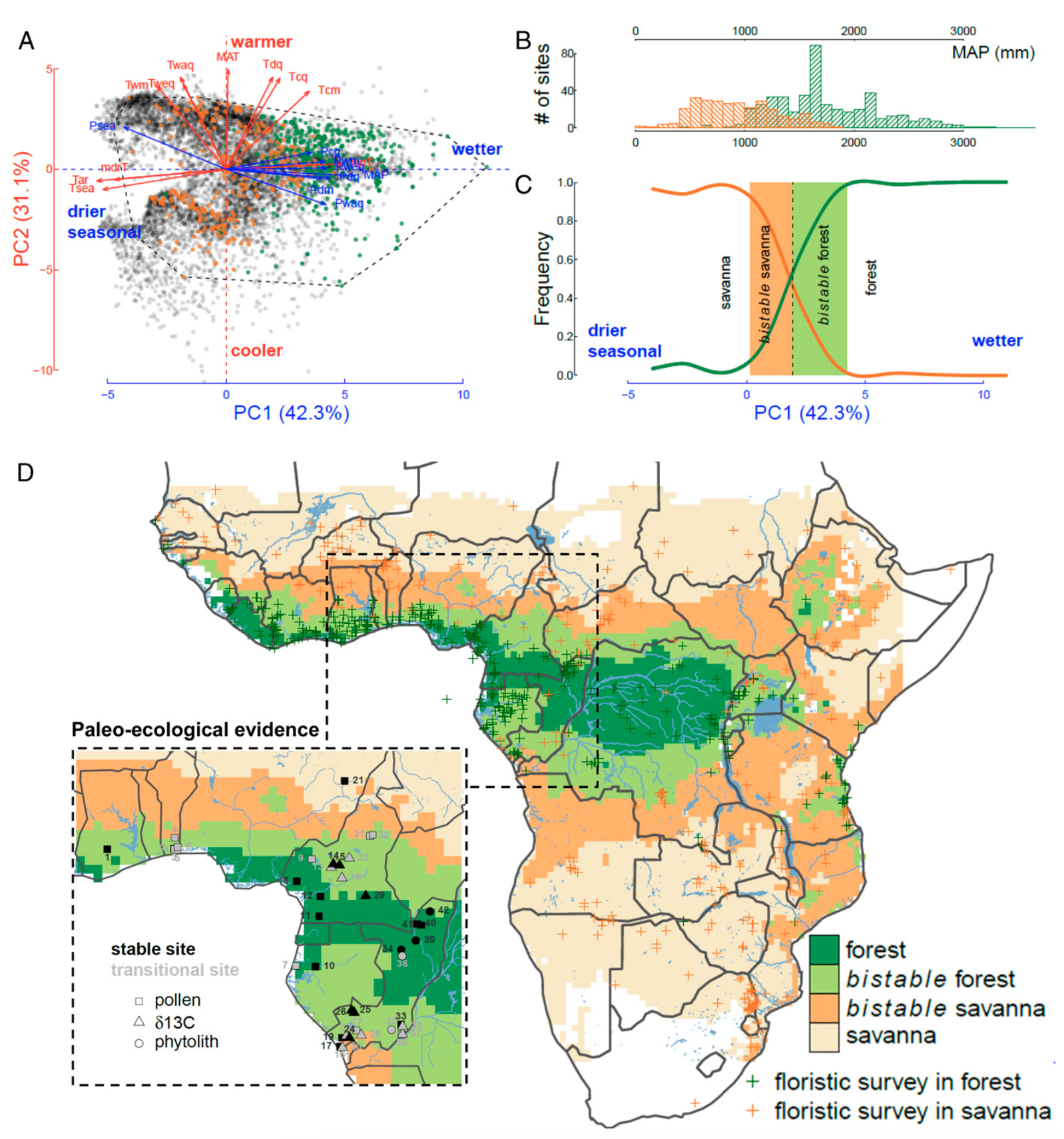
Suspected tipping points
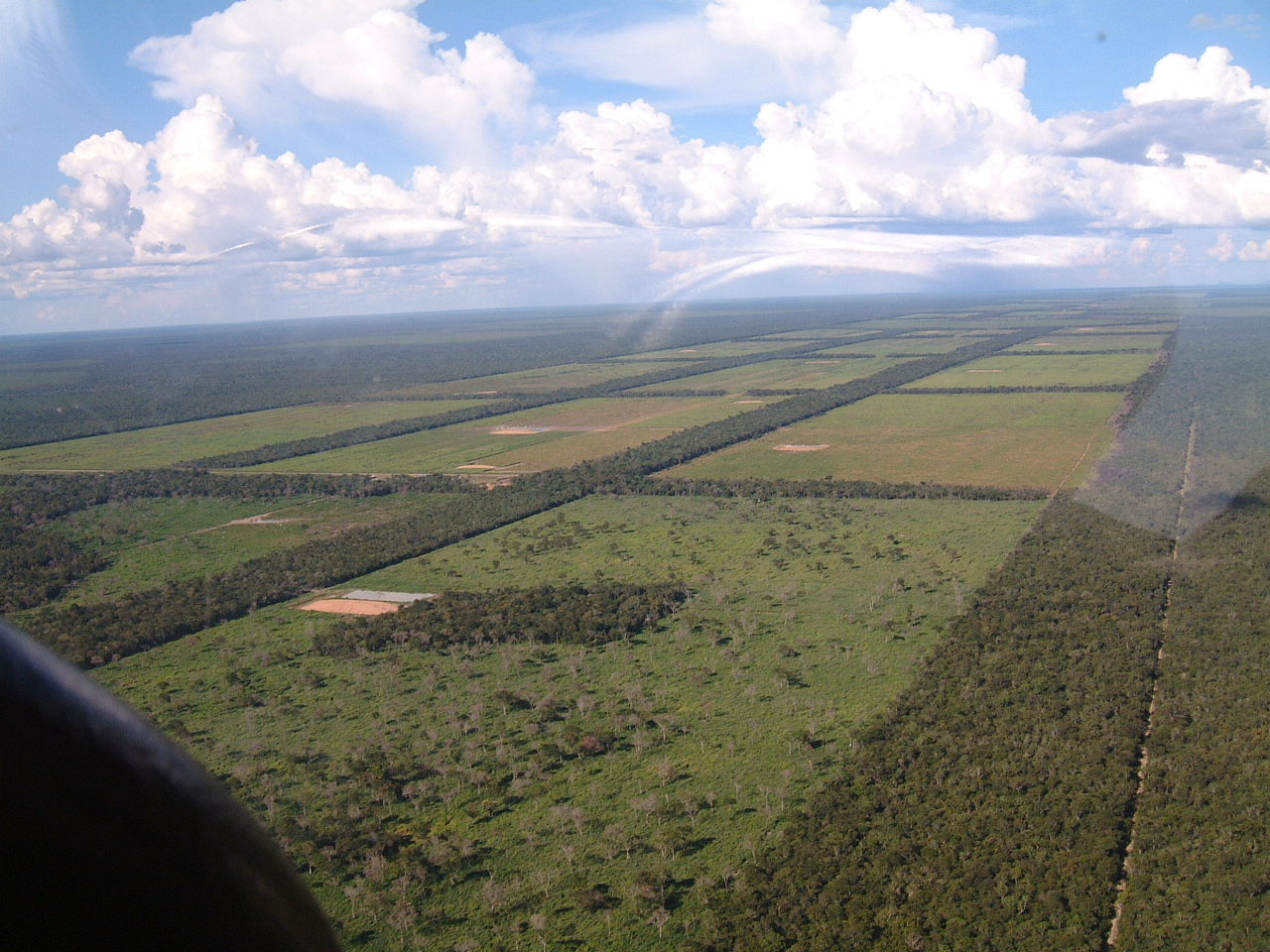
Nobre et al 2016 PNAS
Lovejoy & Nobre 2018 Sci Adv
- Deforestation: 40%
- Precautionary: 20-25%
- Current 20%
- Fire frequency?
And many others…
Challenges of analyzing regime shifts
- Defining regimes and regime shifts is a simplification
- In “reality” often not clear line between regimes
- Depends on criteria of interest
- Identifying drivers and mechanisms is hard
- Systems vary from place to place
- Same system may vary over time
- Social-ecological shifts may be novel
- Novel actors & connections
- How to balance generality and context

Resilience
Resilience is also the capacity to adapt or even transform into new development pathways in face of dynamic change.
Folke, C. 2016. Resilience (Republished). Ecology and Society
- Adaptability is the capacity to learn, combine experience and knowledge to adjust responses
- Transformability is the ability to cross thresholds and move SES into new basins of attractions, into emergent, and often unknown development trajectories
Transformations
Most transformations are regime shifts
Require structural change:
- Flows of energy, materials, information, money
- Who has power
- Who makes decisions
- What values are important
Examples: Industrial revolution | French revolution
Transformations
Understanding regime shifts can help understand the barriers and opportunities for transformation:
- How to destabilize existing regimes
- How to navigate the transition
- How to stabilize the new regime
- Path dependency
But theory is not well developed
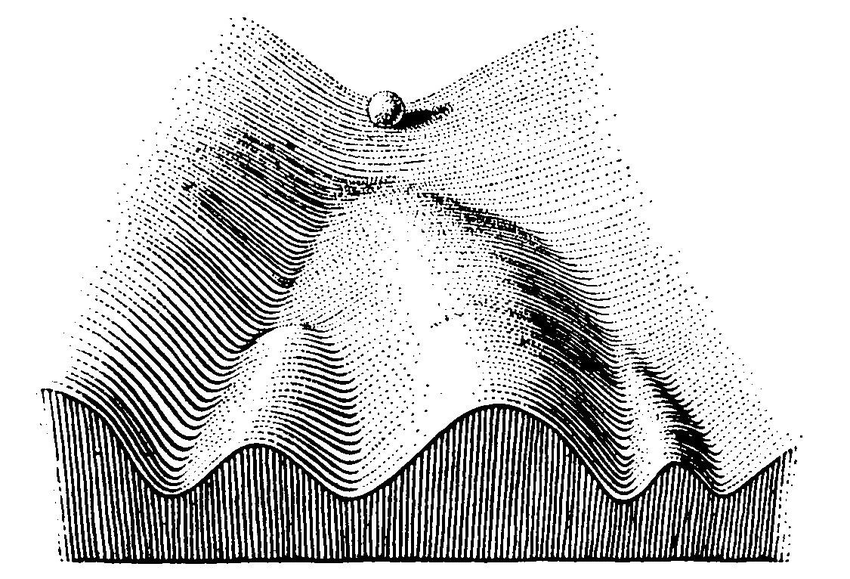
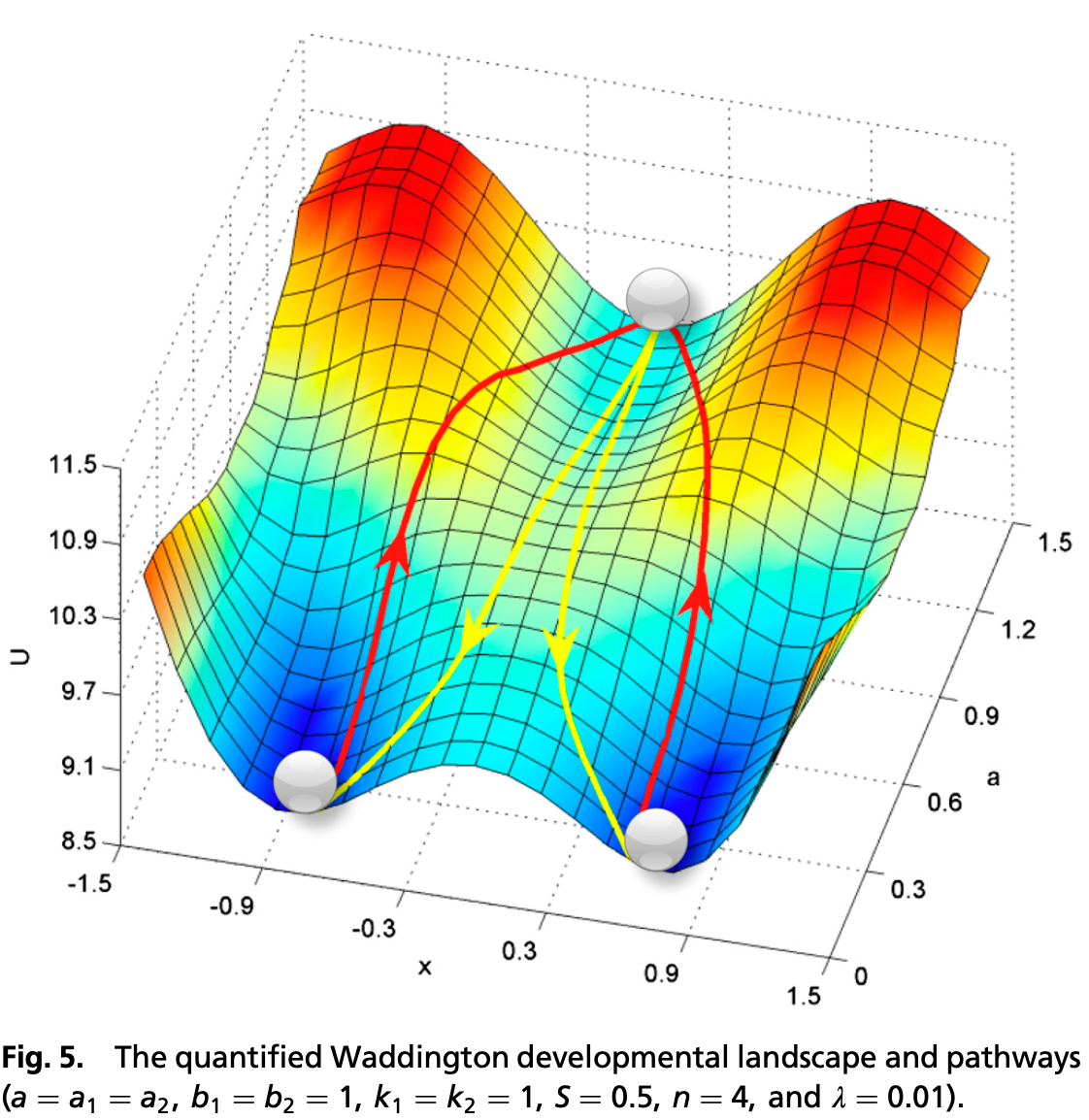
Summary
- Resilience revisited
- Ability to absorb disturbance
- Ability to adapt and transform
- Regime shifts
- Hysteresis
- Tipping points
- Feedbacks
- Transformations
 Regime Shift Solo
Regime Shift Solo
by Angeler and Allen
Gracias | Tack Questions?
email: juan.rocha@su.se



